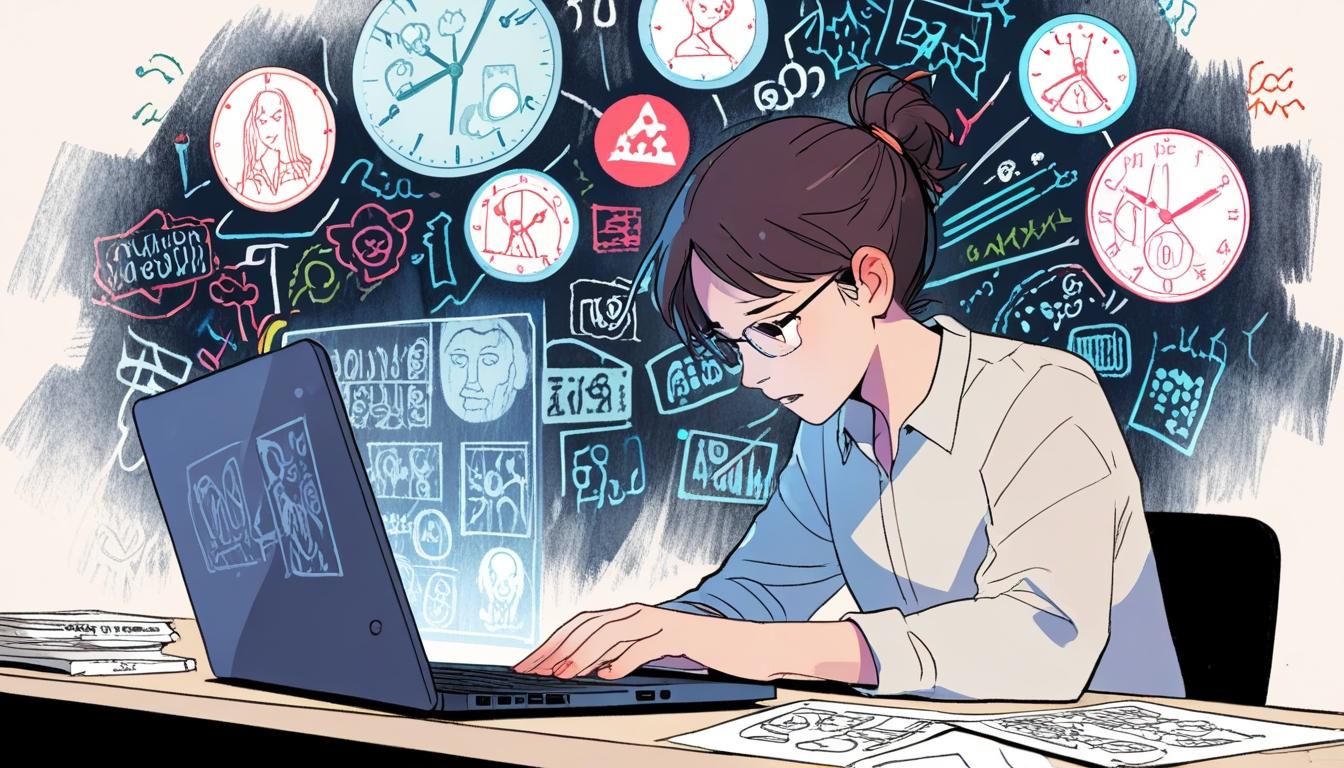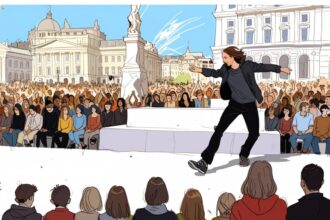As AI-driven recruitment technologies face growing criticism for fairness and efficiency, jobseekers increasingly rely on generative AI like ChatGPT to navigate complex application processes, prompting employers to reconsider traditional and innovative assessment methods.
Jobseekers are increasingly utilising artificial intelligence (AI) tools to streamline the application process, leading to significant challenges for HR departments across various industries. As these automated technologies become more accessible, they have introduced a layer of complexity that both employers and applicants must navigate. According to the Financial Times, many large employers have adopted a “zero-tolerance attitude towards the use of AI” in recruitment, highlighting the growing concern over the integrity of the hiring process.
This situation evolves from employers’ past initiatives aimed at refining recruitment methods. In the 2010s, companies implemented automated recruitment technologies to reduce human bias and increase efficiency in candidate selection. Asynchronous video interviews, where candidates respond to questions without an interviewer present, have become increasingly common. However, these impersonal methods have garnered widespread disapproval from applicants, many of whom report feeling confused and dehumanised.
One candidate shared their experience, stating, “I did one of these and it was the hardest and most humiliating experience I’ve ever encountered.” This sentiment echoes a broader discontent among jobseekers, many of whom struggle under the pressure of such technology during high-stakes interviews. In a notable instance, an applicant recounted using a makeshift setup in a hotel room for a dream job interview, only to feel overwhelmed by the situation.
In response to these challenges, jobseekers have turned to generative AI tools like ChatGPT to enhance their application submissions and improve their performance in assessments. Platforms such as TikTok have seen videos demonstrating how to leverage AI in asynchronous interviews, where candidates simply rehearse answers generated by AI.
However, the phenomenon has led to an “AI arms race” that seems to compromise the efficiency and fairness originally intended by these recruitment technologies. Stephen Isherwood, joint chief executive at the Institute of Student Employers, voiced concerns regarding the influx of AI-generated applications, stating, “It does mean you’re getting ever more applications coming.” This saturation complicates the ability for employers to identify truly qualified candidates.
Moreover, different access levels to paid AI tools are creating new disparities in the hiring process. Jamie Betts, founder of assessment company Neurosight, highlighted findings that 31 per cent of male jobseekers reported using a paid AI tool compared to just 18 per cent of female jobseekers. He noted a concerning trend in assessment performance, indicating poorer outcomes for applicants from underrepresented backgrounds.
As a response to the challenges posed by AI in recruitment, some employers are exploring alternative online assessments that are less susceptible to manipulation, including gamified tests. There is also potential for a return to in-person assessment centres to confirm technical skills, a move supported by Isherwood and Betts.
Even companies such as HireVue, which specialise in asynchronous video interviews, acknowledge the need for more dynamic assessment approaches. A report from the company stated, “One of the best ways to reduce cheating behaviour of all types is to utilise a multi-stage workflow,” suggesting that incorporating live interviews could enhance the validity of candidate evaluations.
Employers face a delicate balance between leveraging technology for efficiency and ensuring fairness and equity in recruitment. The ongoing developments in the recruitment landscape illustrate a recognition that technological solutions alone cannot resolve the inherent complexities and challenges of evaluating human potential.
Source: Noah Wire Services
- https://www.ft.com/content/43cd01f9-ab95-4691-bc74-2403c87f5c17 – This article discusses the escalating ‘arms race’ between jobseekers and employers due to AI integration in hiring, highlighting challenges like AI-generated applications overwhelming recruiters and concerns over fairness and efficiency.
- https://www.ft.com/content/30a032dd-bdaa-4aee-bc51-754867abbde0 – This piece reports that approximately half of job applicants are using AI tools like ChatGPT to craft resumes and cover letters, leading to a surge in AI-generated applications that recruiters find challenging to assess.
- https://www.ft.com/content/249d0f97-768e-4807-917c-76c84ebdf97c – This article highlights a shift in employer attitudes, with recruiters encouraging candidates to use AI tools in their applications to enhance efficiency and showcase skills, reflecting a growing acceptance of AI in recruitment.
- https://www.ft.com/content/3350e093-ca45-4aaf-9f52-639fead3a0bc – This report examines the Nobel Prize awarded for contributions to machine learning and AI, discussing the implications of AI in various sectors, including recruitment, and the need for responsible AI governance.
- https://www.reuters.com/sustainability/society-equity/comment-business-leaders-risk-sleepwalking-towards-ai-misuse-2024-11-19/ – This commentary raises concerns about the adoption of AI tools in businesses without sufficient oversight, highlighting risks like discrimination and legal ramifications, and the need for transparency and accountability.
- https://www.theweek.com/tech/deepfakes-and-impostors-the-brave-new-world-of-ai-jobseeking – This article discusses the use of deepfake technology by job applicants, illustrating how AI is altering the recruitment landscape and creating new challenges for hiring managers.
- https://www.ft.com/content/43cd01f9-ab95-4691-bc74-2403c87f5c17 – Please view link – unable to able to access data
Noah Fact Check Pro
The draft above was created using the information available at the time the story first
emerged. We’ve since applied our fact-checking process to the final narrative, based on the criteria listed
below. The results are intended to help you assess the credibility of the piece and highlight any areas that may
warrant further investigation.
Freshness check
Score:
8
Notes:
The narrative references current concerns about AI technology in recruitment but does not specify exact dates. However, the themes and issues discussed are contemporary and relevant, indicating that the content is likely recent.
Quotes check
Score:
6
Notes:
The narrative includes quotes from individuals like Stephen Isherwood and Jamie Betts, but without further online verification, it’s unclear if these are original quotes or previously reported. The source is reputable, suggesting these could be new or adapted quotes for this piece.
Source reliability
Score:
9
Notes:
The narrative originates from the Financial Times, a well-established and reputable publication known for its rigorous reporting standards and editorial independence.
Plausability check
Score:
9
Notes:
The claims about the challenges posed by AI in recruitment and the shift towards alternative assessment methods are plausible, reflecting common discussions in the HR sector. Lacking concrete evidence for specific claims, such as the 31 per cent and 18 per cent figures, does not necessarily invalidate them, as they align with broader trends.
Overall assessment
Verdict (FAIL, OPEN, PASS): PASS
Confidence (LOW, MEDIUM, HIGH): HIGH
Summary:
The narrative is generally reliable due to its source and plausible claims. The contemporary nature of the AI recruitment challenges discussed supports a high freshness score. While quotes lack online verification, the reputable source suggests they may be original or contextualized for this piece.













